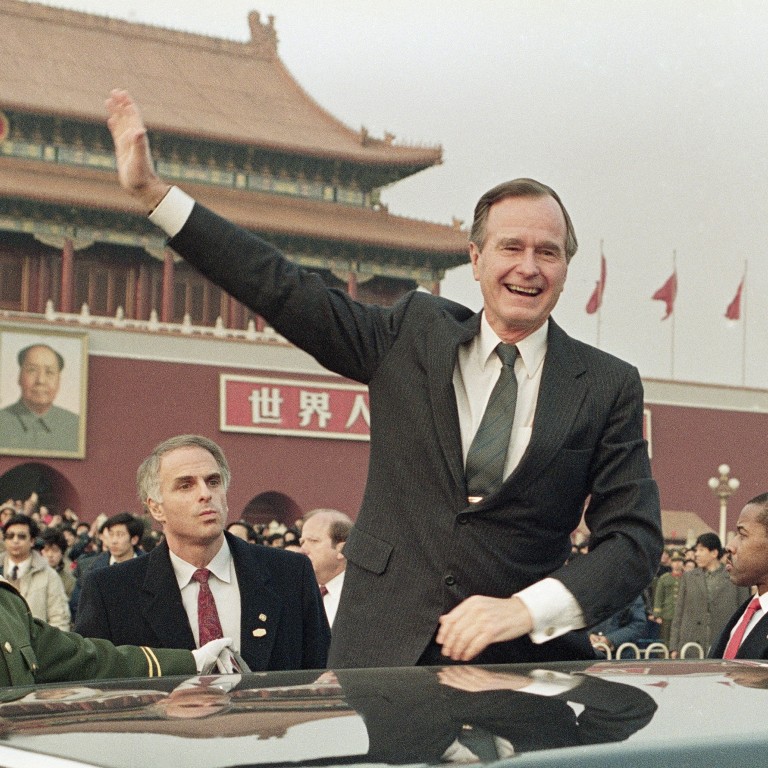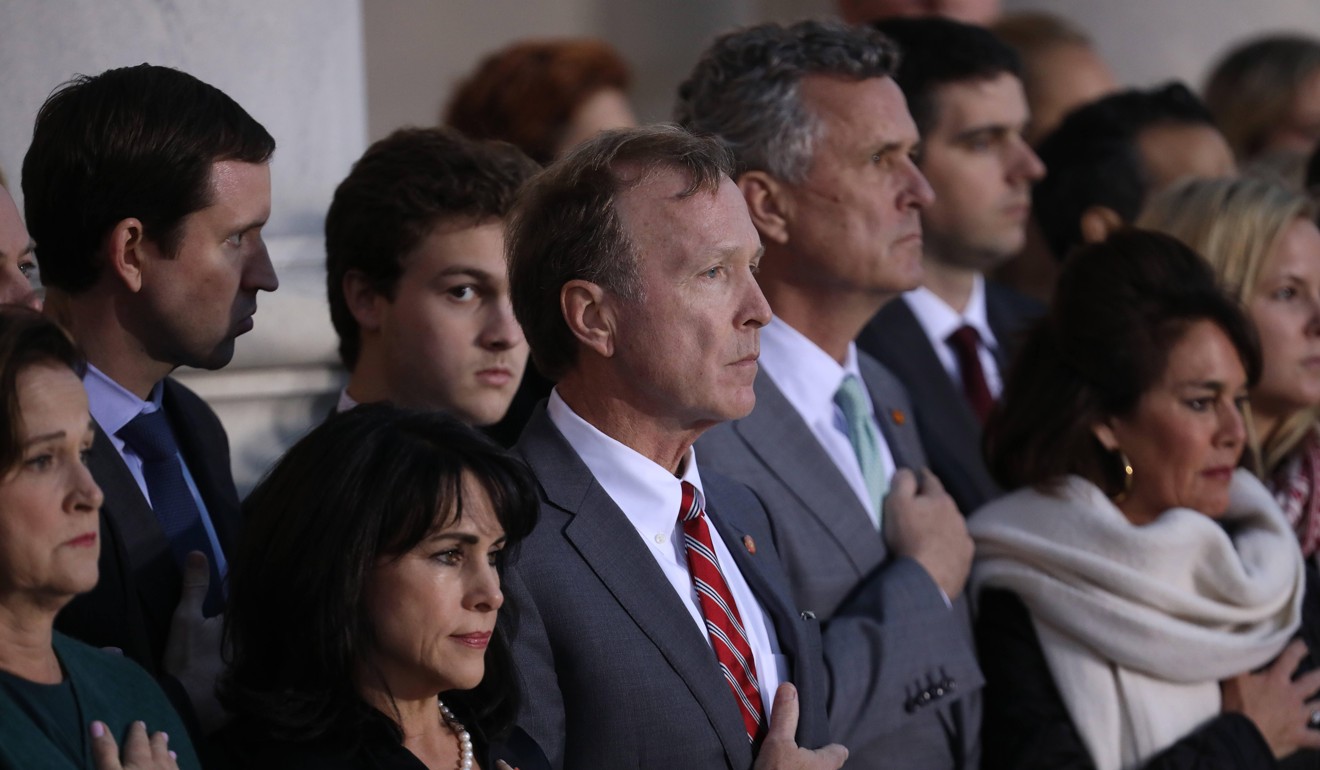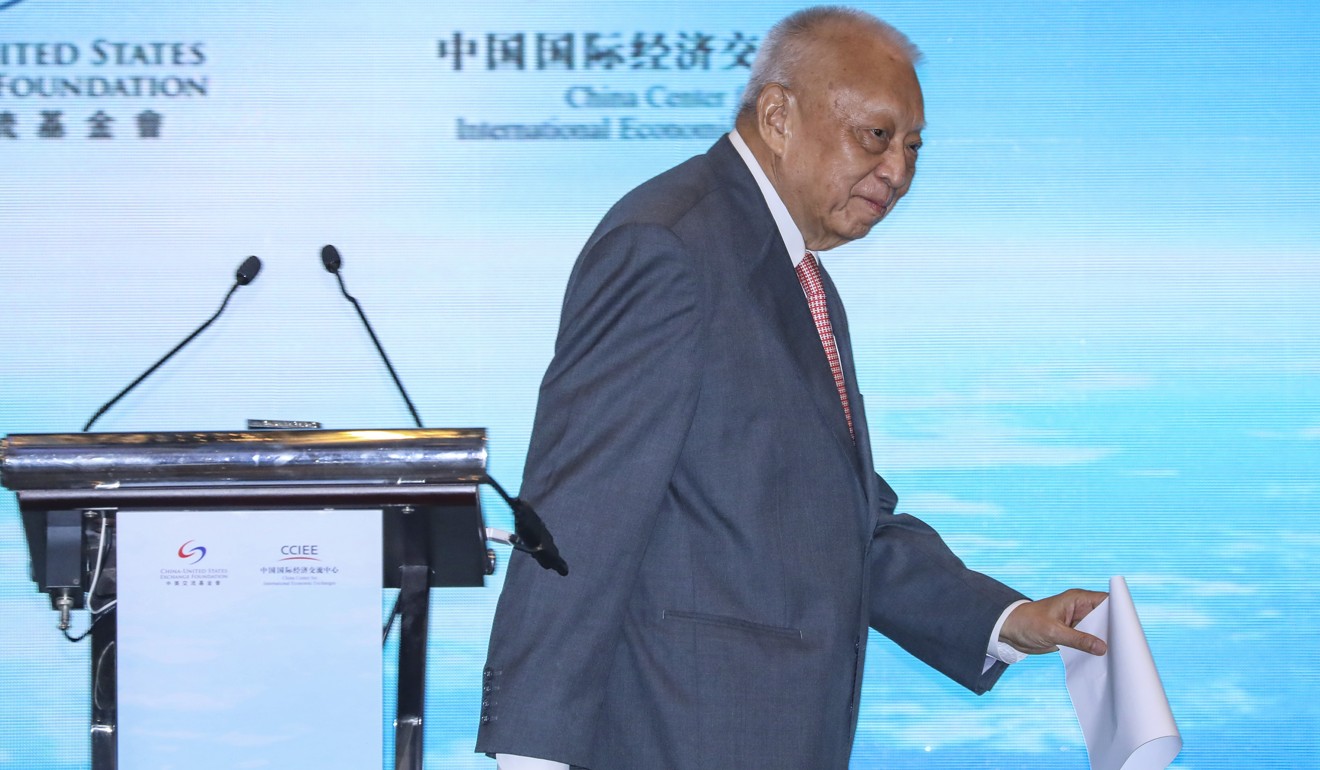
US must stop treating China as an enemy, says son of former president George HW Bush
- Neil Bush hits out at ‘America first’ rhetoric and argues that Washington should stop regarding the country as an existential threat
- Other speakers at forum organised by former Hong Kong chief executive Tung Chee-hwa, support calls to improve relations between America and China
The US should adopt an “honest, direct and targeted” approach in engaging China and not treat the country as an enemy, according to Neil Bush, son of former president George HW Bush.
Speaking in Hong Kong on Wednesday at a forum organised by Tung Chee-hwa, former chief executive of Hong Kong, Bush said that demonising China would lead the US down a dangerous path.
“China is not an economic enemy or existential national security threat to the United States … The demonisation of China is being fuelled by a rising nationalism in the US that is manifested in anti-immigrant, anti-Chinese, pro-America-first rhetoric,” Bush, who is now chairman of the George HW Bush Foundation for China-US Relations, said in his keynote speech.
Bush is one of the many speakers who have addressed the urgency of restoring China-US relations in the two-day forum.

Other noted speakers included ex-Chinese vice-premier Zeng Peiyan, two former ambassadors to Washington and Beijing – Zhou Wenzhong and Max Baucus – and Daniel Russel, a former US assistant secretary of state.
In his speech, Bush said the US should not meddle in China’s internal affairs.
“China is not ruled by a monolithic regime where one guy makes the decisions without regard to the sentiments of other leaders or care and concern for the people,” he said.
“Central to our relationship is the question of whether China is a natural friend or a foe of the US,” he added.
Bush cautioned that “US-style democracy” would only destabilise China, urging Washington to make greater efforts to understand the systematic difference of Beijing’s political structure.
China is not ruled by a monolithic regime where one guy makes the decisions
“A premature move towards a US-style democracy would be destabilising and would most likely cause major setbacks to the freedoms gained over the past 40 years.
“The bottom line is that our system of government, our form of democracy, would not work for China just like China’s system would not work for us,” he said.
“Chinese leaders are walking a tightrope in terms of maintaining internal stability so that the solid platform that has produced amazing results can continue to improve the quality of life for more of its citizens,” the Texas-based businessman added.
Farm products cast a cloud over next US-China trade talks
His late father also served as de facto American ambassador to Beijing in the 1970s, and his son suggested that Bush senior’s approach towards China would be an effective way of improving the current strained relationship.
“To our government, I would suggest we embrace the George HW Bush style of leadership to address these issues – a style that looks to create and maintain multiple levels of frequent dialogue, that seeks to build trust, that puts the parties in the other guy’s shoes, that looks for the best in others, that is respectful, that accounts for cultural differences, an approach that is encouraging and hopeful, but one that is honest, direct and targeted,” Bush said.

In his speech, Tung rejected the argument that China and the US should “decouple”.
“There are people in the US who, for one reason or another, advocate a so-called decoupling of US-China relations. They argue that China has taken too much advantage of the United States,” said Tung, the first chief executive of Hong Kong after it was returned to Chinese sovereignty.
“But in the years to come, the US-China trade relationship is going to become increasingly complementary,” said Tung, who is currently a vice-chairman of the Chinese People’s Political Consultative Conference, an advisory body to the Chinese leadership.
He said the US was the world’s largest supplier of oil, gas and agricultural products, while China was the world’s largest buyer of such goods.
In his own address, Zhou, the former ambassador, said that Washington and Beijing must choose cooperation over competition, noting that cooperation “would better safeguard our own interests and bring more benefits to the world”.
“China will not become the United States, and it will not replace the United States. There must be competition between China and the United States, but it should be a positive competition and a competition that conforms to the rules,” Zhou said.
Trade truce does little to boost confidence in China due to lack of trust in Trump
Zhang Baohui, director of the Centre for Asian Pacific Studies at Lingnan University in Hong Kong, agreed that it was important for China and the US to work to build trust.
“The decoupling of their economies would only destabilise bilateral relations. Even if [the US and China] are engaged in extensive strategic rivalries, economic coupling helps to limit the severity of the strategic rivalries … Economic interdependence fosters peace and stability between states,” he said.
“Decoupling the two economies would therefore give neither side incentives to restrain its actions toward the other party.
“This would create dangerous dynamics for escalation of strategic rivalry and combustible scenarios for a crisis situation. Broadly speaking, decoupling the economies of the two countries would make military conflicts more likely.”

